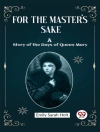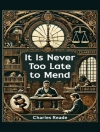In ‘A Mere Interlude, ‘ Thomas Hardy ventures into the complex realms of love, betrayal, and societal constraints with his characteristic realism and lyrical prose. The novella deftly weaves a narrative that explores the ramifications of a brief romantic affair, encapsulating the emotional turbulence of its characters with Hardy’s signature blend of empathy and critique. Set against the backdrop of late 19th-century England, a time when rigid social norms dictated the parameters of personal relationships, this work reflects Hardy’s deep concern with the tension between individual desires and societal expectations. The interplay of fate and free will resonates throughout, making it a compelling study of human experience in its fragile complexity. Thomas Hardy, an eminent figure in English literature, often draws from his own life experiences and the rural milieu of Dorset to shape his narratives. His early years were marked by a preoccupation with the challenges of social mobility and the constraints of Victorian morality, which inform much of his work. ‘A Mere Interlude, ‘ published in 1917, is particularly significant as it encapsulates his later style, marked by introspective character studies and a profound sense of fatalism, reflecting a matured understanding of human relationships. I highly recommend ‘A Mere Interlude’ to readers interested in nuanced explorations of love and morality. Hardy’s exceptional ability to capture the subtleties of human emotion alongside societal critique invites readers to ponder their own relationships within the confines of societal norms. Whether a long-time fan or a newcomer to Hardy’s oeuvre, this work offers a rich, thought-provoking experience that lingers well beyond its final pages.
About the author
Thomas Hardy (1840–1928) stands among the most esteemed English novelists and poets of the Victorian era and the early 20th century. Born in the rural hamlet of Higher Bockhampton in Dorset, Hardy’s humble beginnings were in stark contrast to the notable literary stature he would go on to achieve. He started his career apprenticed as an architect, but his passion for literature propelled him into writing full-time after the publication of ‘Desperate Remedies’ in 1871. Hardy’s profound understanding of the human condition, intertwined with the social constraints of his times, produced novels such as ‘Tess of the d’Urbervilles’, ‘Far from the Madding Crowd’, and ‘Jude the Obscure’. He exhibited an exceptional narrative style characterized by his grim view of the Victorian society and a fatalistic approach to life’s struggles. The one-act play ‘A Mere Interlude’, although not as widely recognized as his major works, underscores his preoccupation with themes of love, honor, and betrayal. His literary contributions go beyond the novel with a rich body of poetry that further solidifies his position in the literary canon. Hardy’s influence endures, resonating through his poignant portrayals of rural England and the inevitability of fate, which continue to captivate readers and scholars alike.












